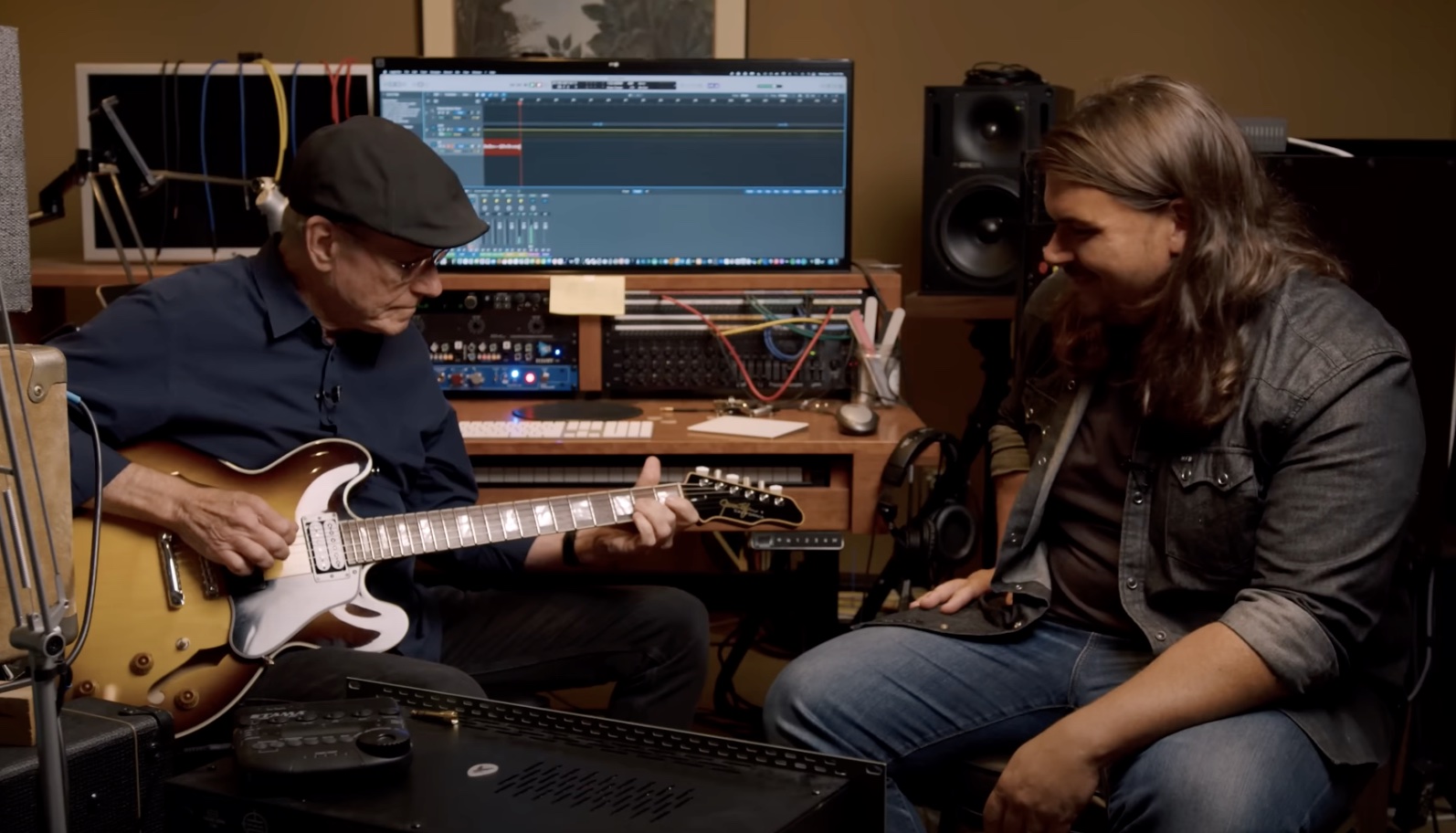
Aside from making its own products, Vertex Effects also has a killer YouTube channel featuring all sorts of themed series that are essentially catnip for guitar and gear nerds.
One of the most prominent of these is The Guitarist Behind..., in which Vertex owner/CEO Mason Marangella sits down with some of the best session electric guitar players out there to discuss their (often overlooked) contributions to some of pop and rock's most timeless tunes.
Last year, for instance, Marangella interviewed Prince & the Revolution guitarist Wendy Melvoin, and unpacked Melvoin's crucial contributions to Purple Rain, particularly the hot-rodded Rickenbacker and mystery chorus pedal that powered the epic song.
Recently, Marangella sat down with Dean Parks, whose mind-blowing list of credits includes work with – to list just a few names – Eric Clapton, Stevie Wonder, Babyface, and Toni Braxton. Most famous, though, are Parks' many contributions to the Steely Dan catalog.
You can hear Parks on countless Dan classics – Haitian Divorce, Deacon Blues, Rikki Don’t Lose That Number, and Josie among them. In the latest episode of The Guitarist Behind..., Parks – wielding a gorgeous 335-style prototype from James Tyler Guitars – breaks down his contributions to those songs and others in amazing, up-close detail.
Obviously, it's a treat to see Parks play and get into the nitty-gritty of each of these much-covered guitar parts – just listen to the sparkle and shine of the Josie intro – but what's perhaps more interesting are Parks' anecdotes of how his fellow '70s session guitar kings influenced him, and vice versa.
When asked what he played on Josie, Parks says that he used a '68 ES-335 with a thick neck. Thicker necks, Parks reveals, were in vogue among session six-stringers at the time, thanks to one Larry Carlton.
“We all loved Larry Carlton's guitar – it was just a magic guitar,” Parks tells Marangella. “It had a little bit of a chunkier neck than we would have chosen – we were all kind of looking for guitars with chunky necks to try and get the sustain that he had.”
While we're on the subject of Carlton's guitars, Parks also reveals in the interview that he used the former's ES-335 for his Bob Marley-inspired contribution to Steely Dan's Haitian Divorce.
Steely Dan isn't the only thing on the video's menu, though – Parks also goes into his silky-smooth acoustic guitar playing on Eric Clapton's Change the World, and his work on Stevie Wonder's landmark Songs in the Key of Life and Innervisions albums, remembering along the way who joined him on the sessions, and what he used on each.
For more of Vertex's interviews with session guitar greats, visit the company's YouTube channel.







